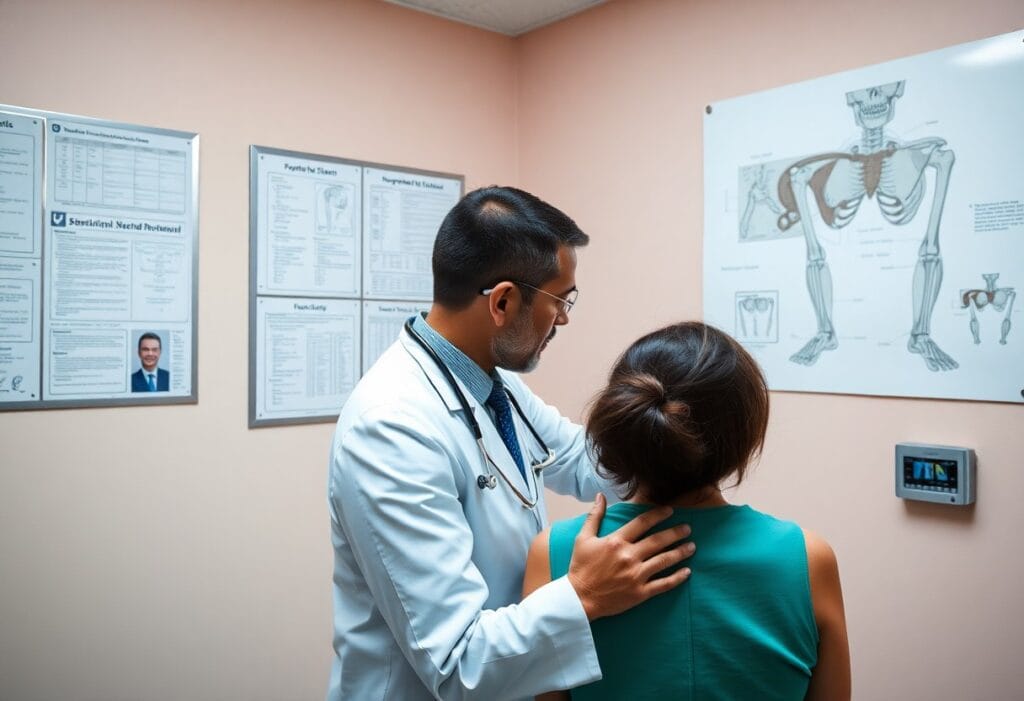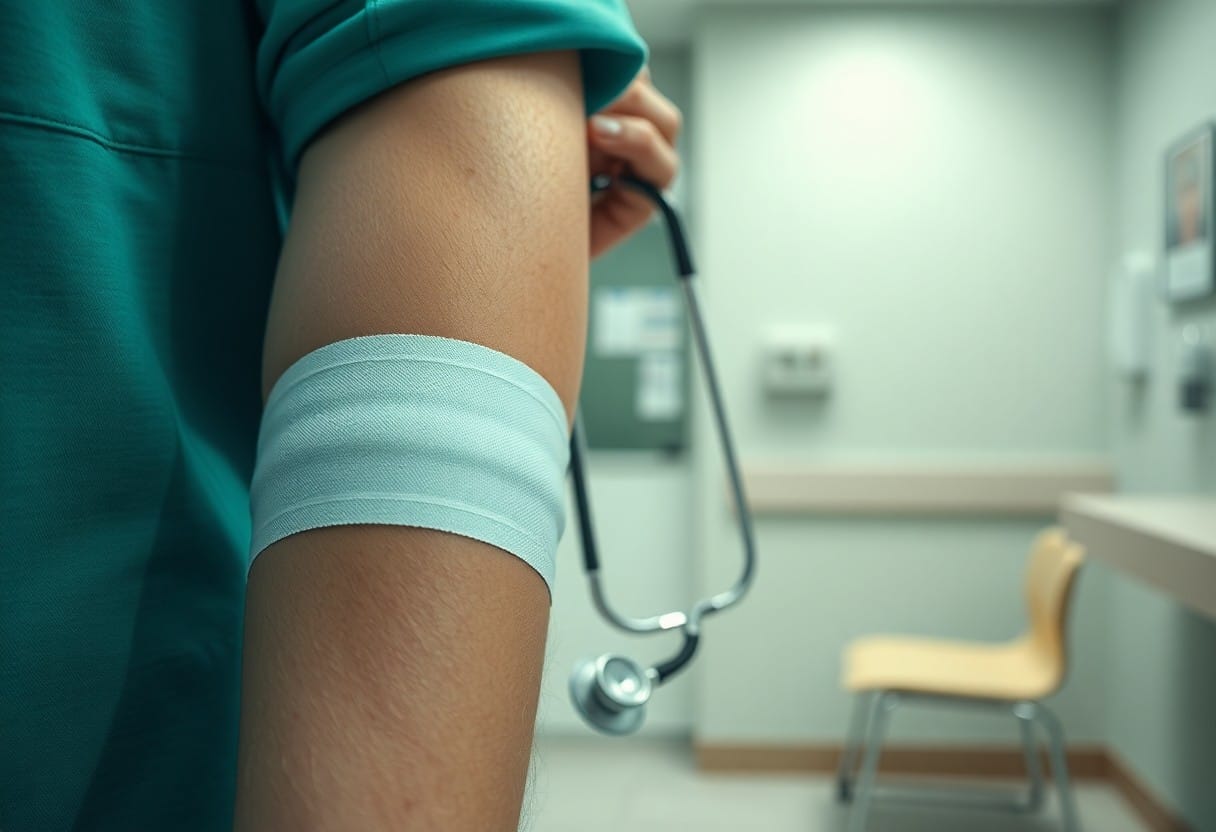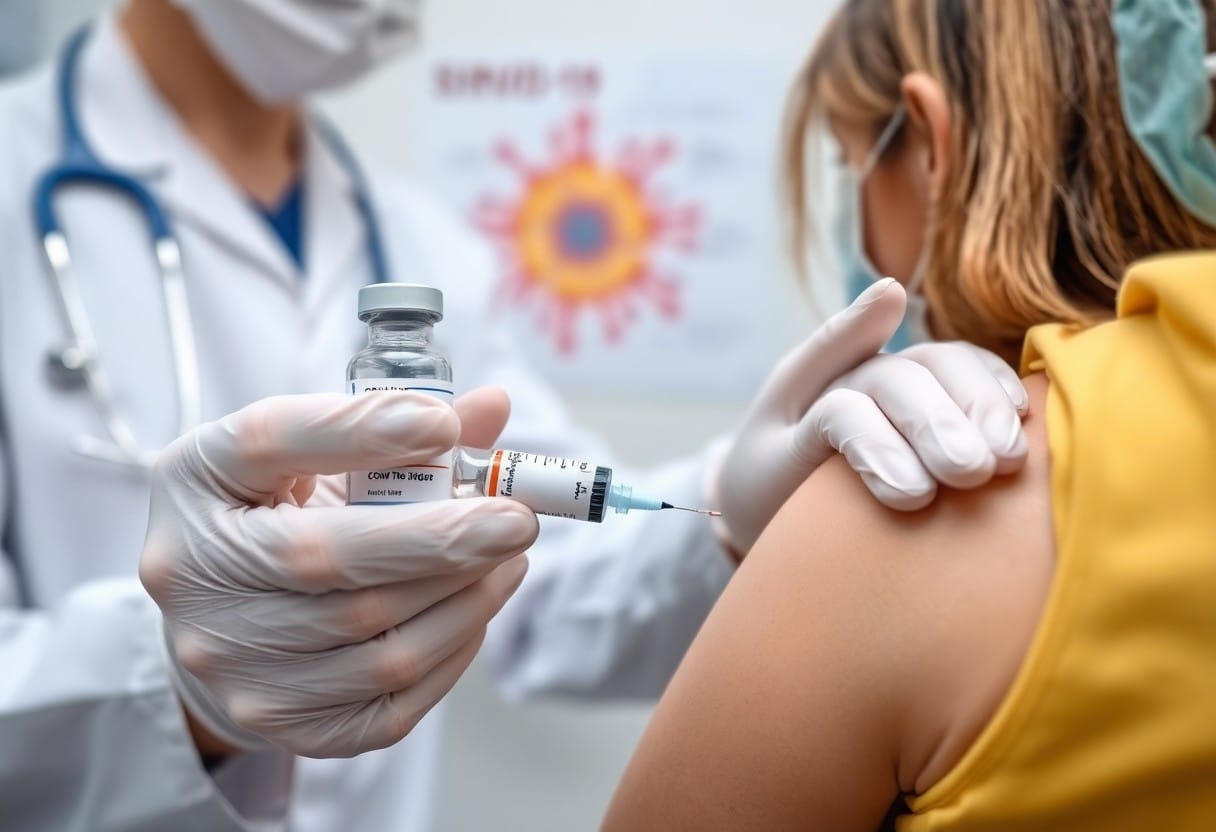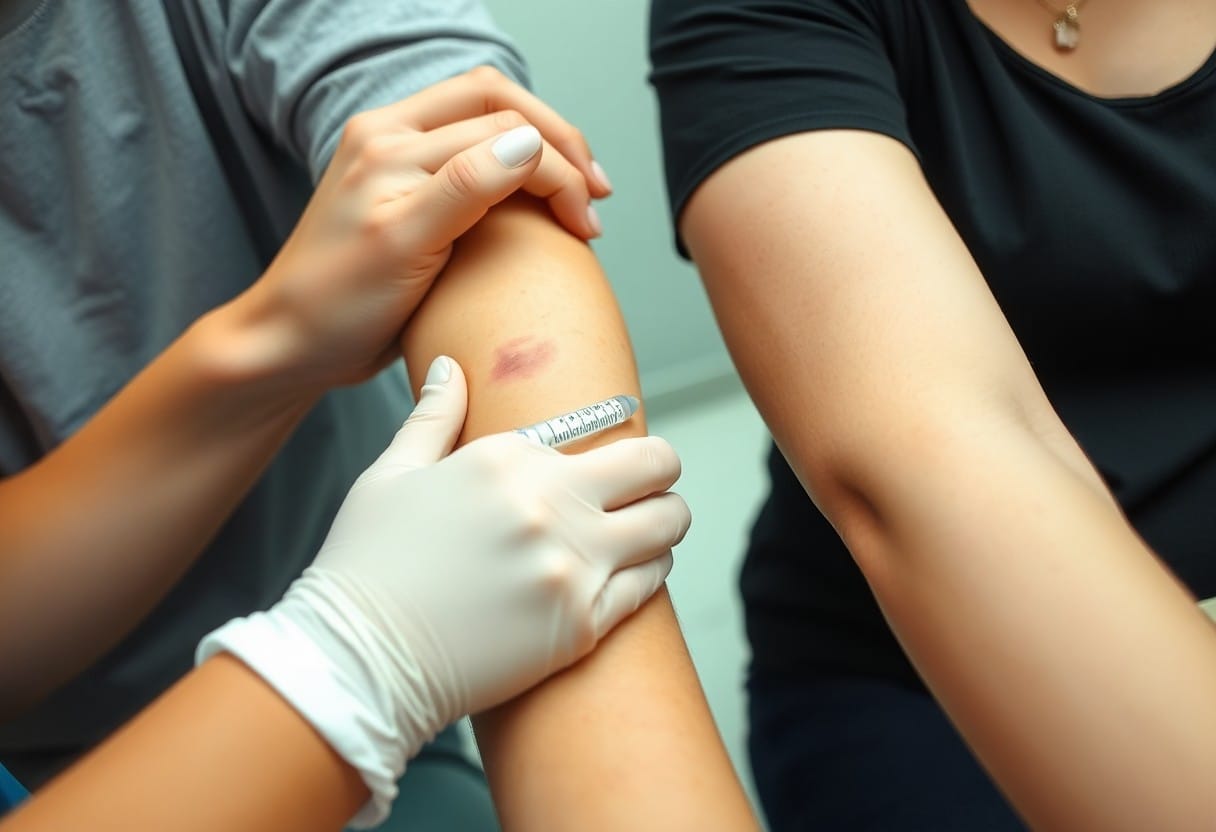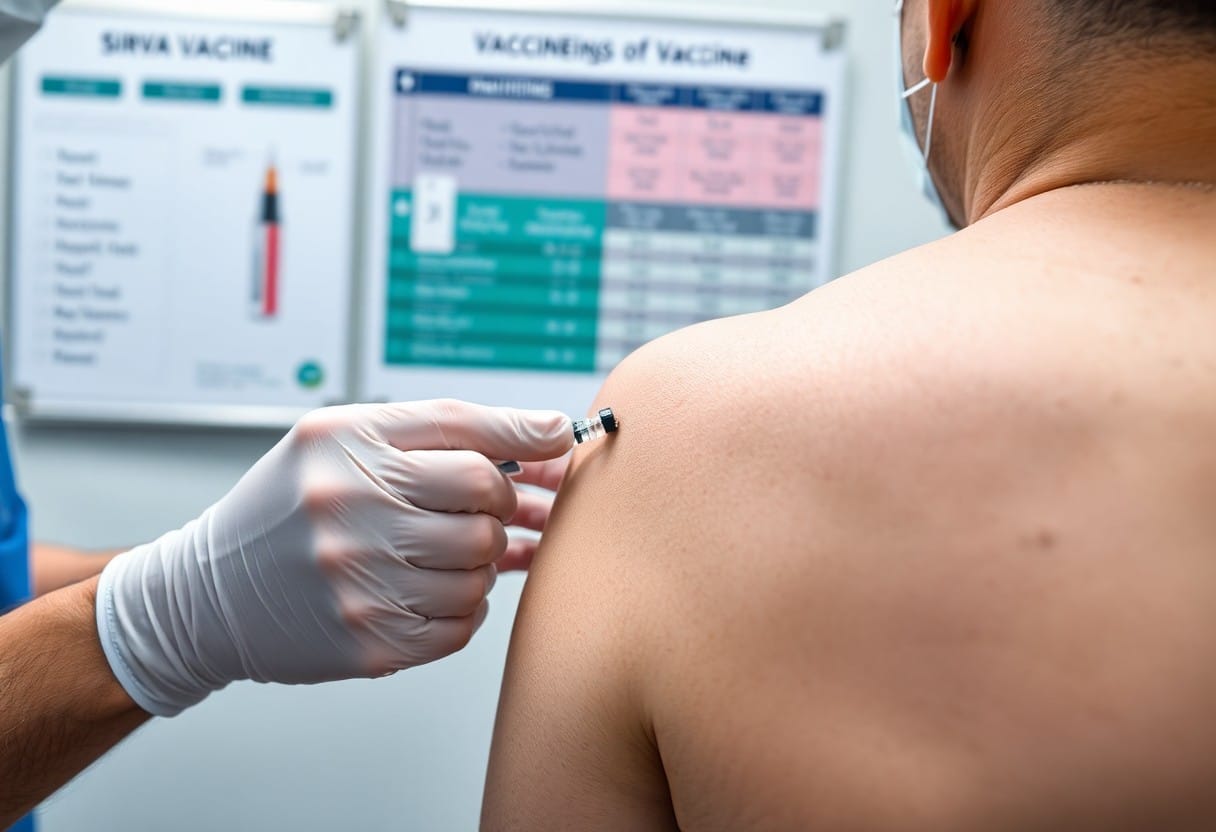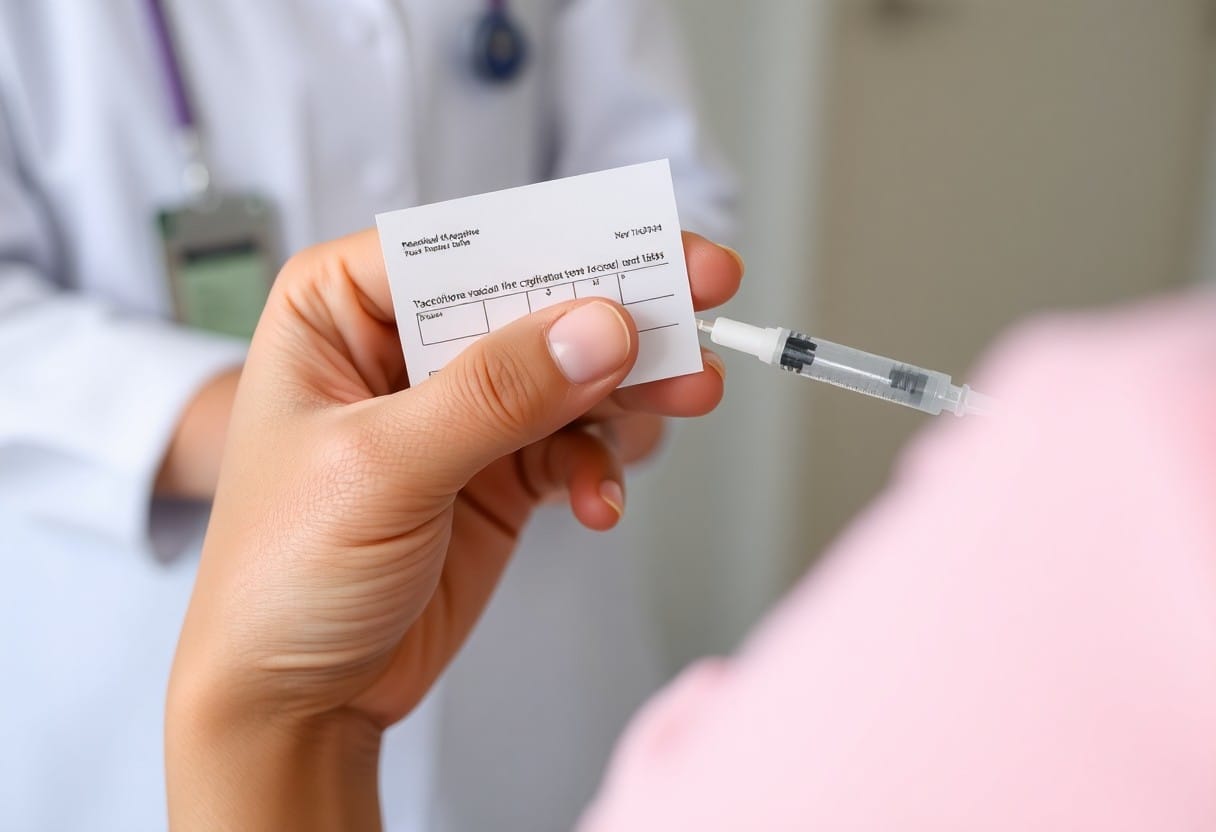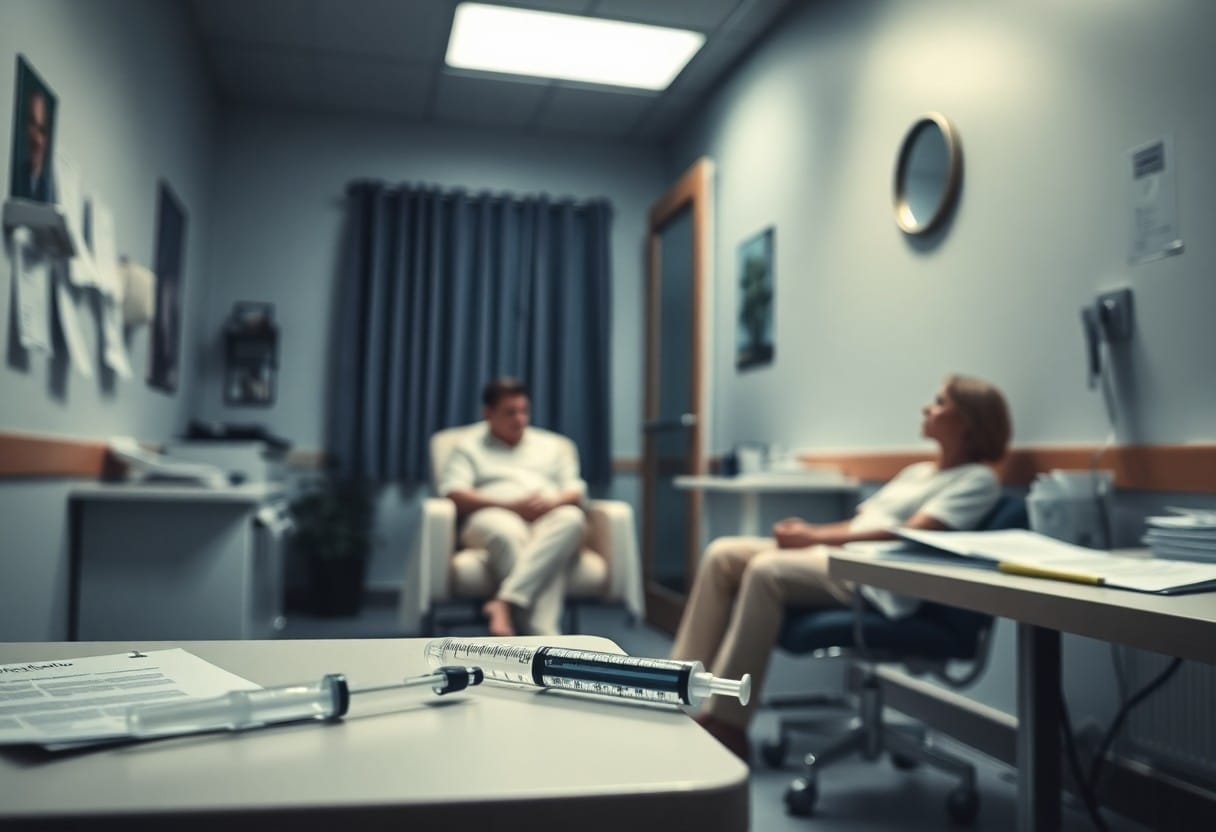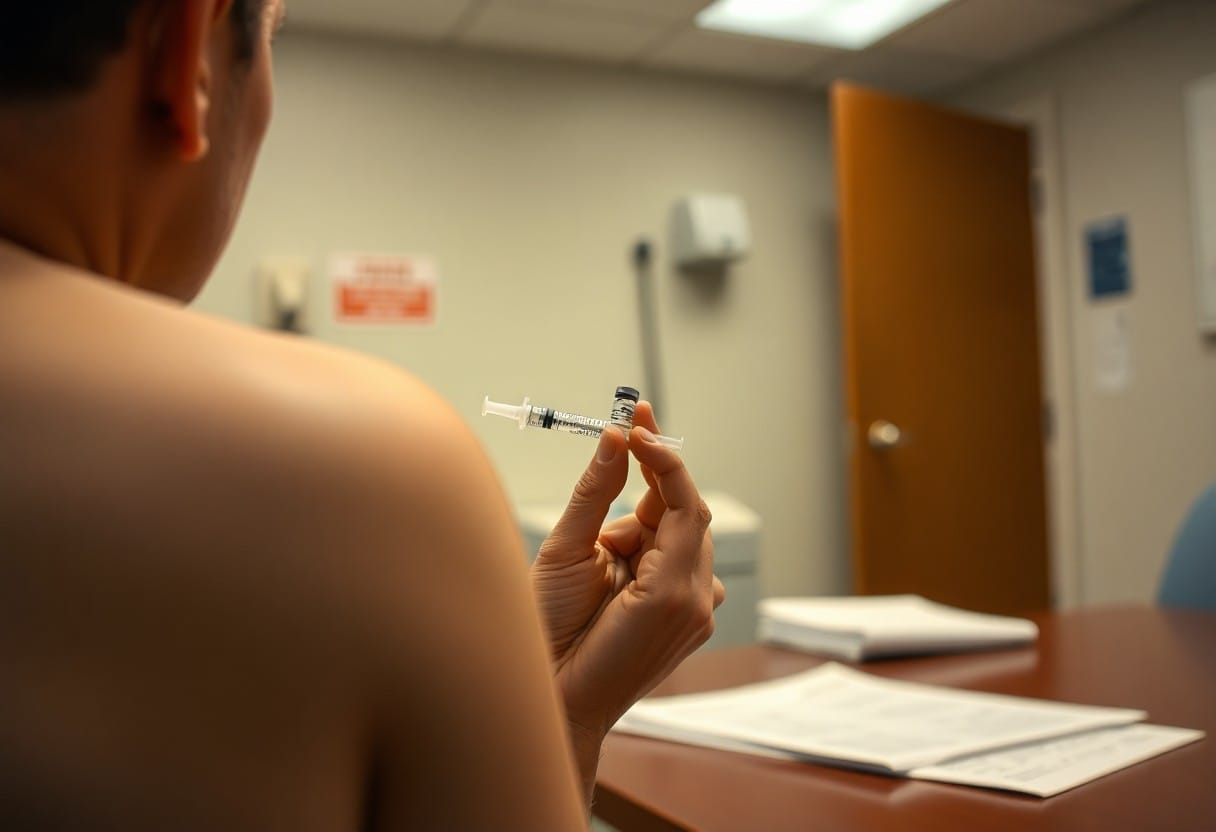Many people experiencing a SIRVA injury, or Shoulder Injury Related to Vaccine Administration, may be unsure about which medical professional to consult. Understanding your options is important, as the right specialist can greatly influence your recovery journey. You should seek out a primary care physician first, who can evaluate your symptoms and provide referrals to an orthopedic doctor or a physical therapist if necessary. Knowing the correct steps to take can lead to a more effective treatment plan and improved outcomes for your shoulder health.
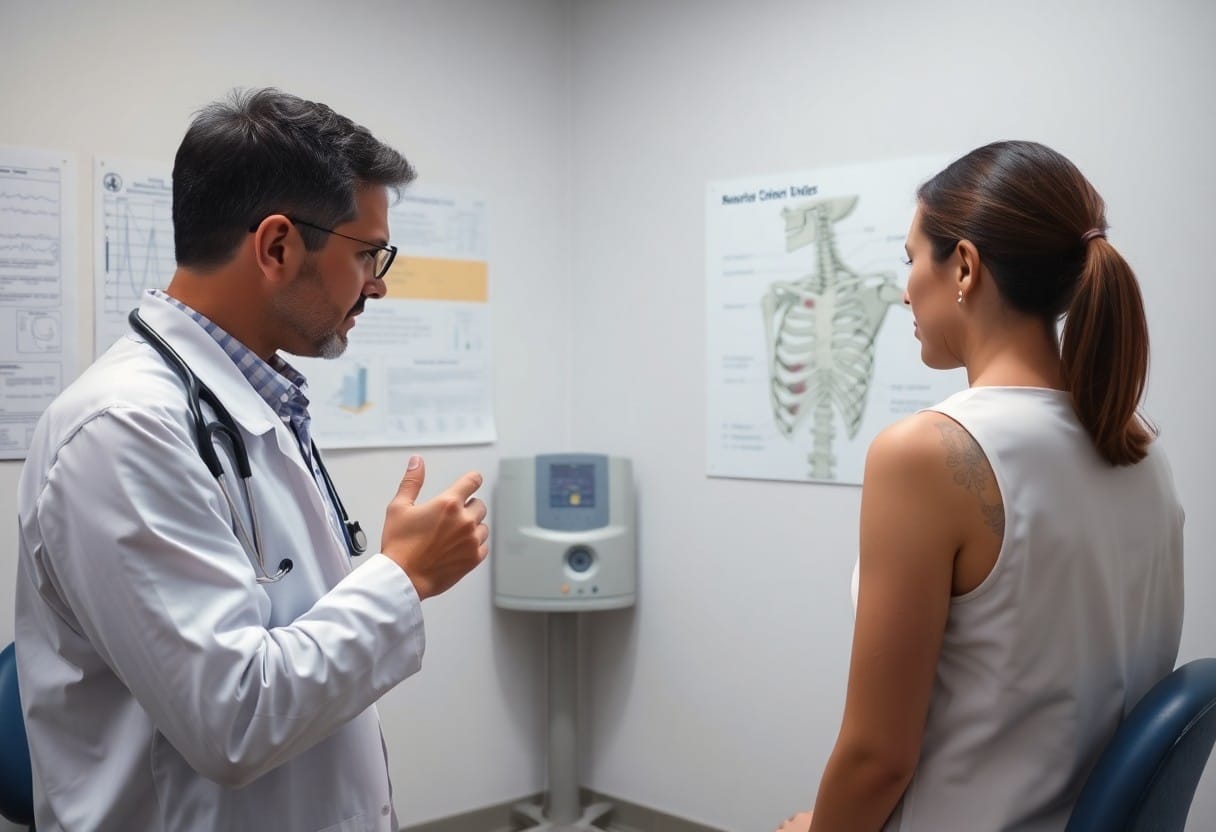
Understanding SIRVA
For individuals who have undergone a vaccination, it’s necessary to understand Shoulder Injury Related to Vaccine Administration (SIRVA). This condition arises when a vaccination is improperly administered, typically when the needle is injected too high into the shoulder joint. You may experience pain, limited mobility, and inflammation as a result of this injury, which can significantly affect your daily activities.
Definition of SIRVA
Against common belief, SIRVA is not simply a mild side effect; it is a recognized medical condition resulting from inappropriate vaccine administration. Characterized by persistent shoulder pain and dysfunction, it requires a proper understanding of the injury to enable effective treatment and recovery.
Symptoms and Diagnosis
SIRVA manifests through various symptoms that can mimic other shoulder injuries. You may experience localized pain, swelling, and reduced range of motion shortly after the vaccine is administered. Diagnosis typically involves a thorough physical examination and sometimes imaging studies to rule out other conditions. The identification of these symptoms is vital, as timely referral to a specialist can lead to prompt treatment and a better prognosis.
The diagnosis of SIRVA can be challenging, as the symptoms may initially resemble other shoulder injuries. The best approach involves a comprehensive assessment of your medical history and a detailed evaluation of your symptoms. You may notice that your pain intensifies when you move your shoulder or lift your arm. In addressing these symptoms, healthcare professionals will often use diagnostic imaging, like X-rays or MRI scans, to confirm the presence of inflammation or structural damage within the shoulder joint. Recognizing and diagnosing SIRVA promptly is necessary to initiate appropriate treatment and prevent long-lasting complications.
Types of Doctors for SIRVA
Clearly, when dealing with a SIRVA injury, it’s imperative to consult the right medical professional for effective treatment. Here’s a brief overview of the types of doctors you should consider:
| Type of Doctor | Specialty |
|---|---|
| Primary Care Physician | Initial assessment and referral |
| Orthopedic Surgeon | Bone and joint issues |
| Rheumatologist | Inflammatory conditions |
| Physical Therapist | Rehabilitation |
| Pain Management Specialist | Pain relief strategies |
The right medical guidance can greatly improve your recovery experience.
Primary Care Physicians
On your journey to healing from SIRVA, a primary care physician plays a pivotal role. They will evaluate your symptoms, provide a preliminary diagnosis, and refer you to specialists if necessary, ensuring you receive comprehensive care tailored to your specific needs.
Orthopedic Surgeons
The role of an orthopedic surgeon becomes significant when SIRVA affects your shoulder region. These specialists focus on diagnosing and treating issues related to bones, joints, and soft tissues, which may arise from your injury.
Care from an orthopedic surgeon is imperative for determining the extent of your injury and formulating an appropriate treatment plan. They may suggest options ranging from physical therapy to surgical interventions if conservative measures fail. Their expertise in musculoskeletal injuries ensures that you receive targeted treatment that can lead to improved function and reduced pain.
Rheumatologists
Against the backdrop of SIRVA, a rheumatologist specializes in diagnosing and treating inflammatory conditions that may complicate your recovery. They focus on understanding the underlying autoimmune or systemic issues that could hinder your healing process.
Hence, seeking help from a rheumatologist can be beneficial if you experience persistent inflammation or joint discomfort. Their specialized knowledge enables them to develop a tailored treatment strategy, potentially combining medications and lifestyle modifications to address both SIRVA symptoms and any concurrent rheumatic conditions you might have.
Physical Therapy and Rehabilitation
After experiencing a SIRVA (Shoulder Injury Related to Vaccine Administration) injury, engaging in physical therapy can significantly aid in your recovery. Physical therapists utilize targeted treatments to restore function, alleviate pain, and help you regain strength in your shoulder. By addressing both physical and functional aspects of your condition, these professionals are key players in your healing journey.
Importance of Physical Therapy
The role of physical therapy in your recovery from a SIRVA injury cannot be overstated. It helps mitigate discomfort, enhances mobility, and strengthens the muscles surrounding the shoulder joint. Therapy can also prevent long-term complications, ensuring you return to your normal activities as quickly and safely as possible.
Types of Rehabilitation Programs
One of the most effective ways to tackle your SIRVA injury is by enrolling in a tailored rehabilitation program. These programs often include:
- Strengthening exercises to bolster shoulder stability.
- Range of motion training to restore flexibility.
- Pain management techniques like modalities and modalities.
- Functional training for daily activity optimization.
- Education on injury prevention to avert future issues.
After participating in these programs, you can expect significant improvements in your daily functioning.
| Program Type | Description |
| Strengthening | Specialized exercises to enhance muscle support. |
| Range of Motion | Activities focused on restoring flexibility. |
| Pain Management | Use of modalities to alleviate discomfort. |
| Functional Training | Education on efficiently performing daily tasks. |
| Injury Prevention | Strategies to avoid future injuries. |
In addition to traditional rehabilitation, advanced modalities can further enhance your recovery experience. Programs may include:
- Manual therapy to release tight muscles.
- Therapeutic ultrasound to promote healing.
- Electrical stimulation for pain relief.
- Heat and cold therapy to reduce swelling.
- Joint mobilization techniques to improve movement.
After exploring these options, you can tailor a program that best fits your specific needs.
| Advanced Modality | Description |
| Manual Therapy | Hands-on treatment to alleviate muscle tension. |
| Ultrasound Therapy | Utilizes sound waves to speed up healing. |
| Electrical Stimulation | Helps manage pain through electrical impulses. |
| Heat Therapy | Relieves stiffness and promotes circulation. |
Seeking Specialized Care
Now that you understand SIRVA injuries, it’s imperative to seek specialized care to manage your symptoms effectively. After an initial evaluation by your primary care physician, they may refer you to specialists who can offer tailored treatment plans. These healthcare providers, experienced in pain management, rehabilitation, or related fields, can help address the nuances of your injury and offer the best chances for recovery.
When to Consult a Pain Specialist
Between managing chronic pain and experiencing limited mobility, knowing when to consult a pain specialist is vital for your recovery. If you find that standard treatments aren’t alleviating your discomfort or if your symptoms intensify, seeking specialized care can lead to more effective, individualized strategies that mitigate your pain and improve your quality of life.
Role of Sports Medicine
Specialist care in sports medicine can be an effective avenue for addressing SIRVA injuries. Sports medicine experts are equipped with the knowledge and skills to develop targeted rehabilitation programs that focus on restoring mobility and strength. They often utilize a combination of physical therapy, exercise regimens, and both non-invasive and minimally invasive techniques to facilitate your recovery and prevent future injury. Their experience in treating similar injuries in athletes gives you an edge in regaining your functionality and stability.
With access to advanced diagnostic tools and a thorough understanding of musculoskeletal injuries, sports medicine specialists can pinpoint the underlying issues caused by the SIRVA injury. By utilizing customized rehabilitation exercises, they help restore your shoulder’s range of motion, strengthening supporting muscles and reducing pain. Their focus on a holistic approach ensures that you not only recover from your injury but also enhance your overall athletic performance and mitigate the risk of future injuries. This specialized expertise makes consulting a sports medicine doctor a favorable option in your recovery journey.
Insurance Considerations
To effectively manage a SIRVA injury, understanding your insurance options is important. Insurance coverage can vary widely, so it’s important to check your policy details to see which treatments and specialists are covered. Be proactive in communicating with your insurance provider to ensure you fully understand your benefits and any potential out-of-pocket costs associated with your care.
Coverage for SIRVA Treatments
Above all, securing coverage for SIRVA treatments is vital for your recovery. Many insurance plans include physical therapy, pain management consultations, and other related services. However, you may need to provide documentation from your healthcare provider to substantiate the necessity of these treatments to your insurer.
Navigating Medical Bills
Before processing your medical bills, it’s important to review each statement carefully. Understanding the breakdown of charges and how they align with your insurance benefits can help you spot any discrepancies. Contact your provider for explanations if you notice unfamiliar charges or if certain services seem to be unreasonably high.
Bills can often be overwhelming, especially after a medical incident like SIRVA. You may receive multiple bills from various providers involved in your care, including specialists and hospitals. Filing appeals for denied claims can be necessary if you encounter issues with coverage. Always stay organized and maintain a detailed record of all communications with your insurance and healthcare providers. This thoroughness will not only help you avoid unexpected costs, but it also empowers you to challenge incorrect billing, ensuring you receive the full benefits your policy offers.
Preventing SIRVA Injuries
Unlike other vaccine-related injuries, SIRVA can be significantly reduced by adhering to appropriate vaccination practices and techniques. By taking preventative measures, you can ensure a safer experience and minimize the risk of shoulder injuries. Simple modifications, including careful positioning and technique, can make a big difference.
Best Practices for Vaccination
Vaccination plays an crucial role in protecting against diseases, but ensuring proper techniques can help you avoid SIRVA. Always opt for a qualified professional who follows standardized practices such as
- Conducting a competent assessment of your medical history
- Administering the vaccine in the appropriate muscle tissue
- Using sterile instruments and safe disposal methods
Knowing how to prepare adequately can contribute to a safer vaccination process.
Tips for Safe Injection Techniques
Among the various methods to prevent SIRVA injuries, employing the right injection techniques is crucial. This includes ensuring that the injection is given in the proper location, using the correct angle, and applying pressure after the injection. It’s vital to avoid injecting too high on the shoulder, which can lead to complications. Some effective techniques include
- Using a site assessment to identify the best injection spot
- Considering the patient’s anatomical landmarks carefully
- Confirming the use of the correct gauge and length of the needle
Knowing these points can make the vaccination process smoother and safer for you or your loved ones.
Techniques also include proper aftercare following an injection, which can minimize soreness and swelling. You should also avoid using extreme shoulder movements immediately after receiving a vaccine. In addition to proper administration, the following safe practices are encouraged:
- Informing your healthcare provider about any past injection site issues
- Maintaining a calm position throughout the procedure
- Ensuring that all post-vaccination care is followed thoroughly
Knowing these crucial aspects of safe injection techniques can greatly benefit your overall vaccination experience.
To wrap up
With these considerations, it’s important for you to consult a healthcare provider who is well-versed in SIRVA injuries. Start with your primary care physician, who can assess your condition and guide you toward the appropriate specialist if necessary. Physical therapists or orthopedic doctors may also be instrumental in your recovery process. Pay attention to your symptoms and express any concerns about mobility or pain, so you can receive tailored advice for your specific situation.


